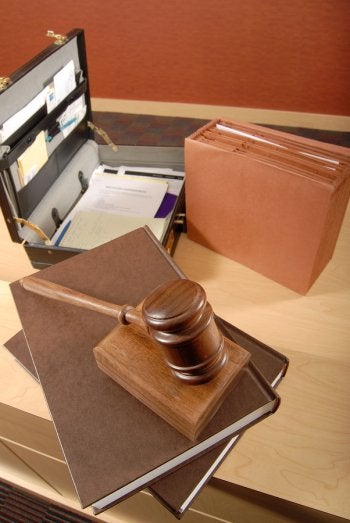-
Important Things to Consider When Making a Will
A will attorney in The Woodlands can explain the factors which you should consider when creating your will. These include selecting an executor of the will and designating a guardian for your minor children. By working with a will attorney, you can rest assured that this important legal document will be drafted in a way that clearly specifies your preferences and reduces the possibility of a will contest.
Select a Will Executor

The executor of a will is the person who is responsible for managing the estate, satisfying liabilities, and distributing assets. It is most common to select a spouse as the executor, but this is not mandatory. The responsibilities of an executor can be arduous. An executor who is grieving your passing may find it difficult to pay close attention to the tasks at hand. With this in mind, some people choose a more distant relative or even a professional executor to perform such duties. You can discuss your options with your attorney should you desire further guidance on this matter.
Choosing a Guardian
If you currently have minor children, it’s essential to designate a guardian for them in the event that you and the other parent die before they turn 18. Without such a designation, a court will determine custody of the children. Choosing a guardian can be a sensitive issue. When assessing a person’s fitness as a guardian, consider that person’s overall health, current relationship with your children, parenting style, religious beliefs, and his or her financial resources. It may be wise to also consider that individual’s residency, particularly the school district in which he or she resides. The guardian’s residence might well be your children’s residence should you not be there.
Consider Charitable Giving
Many individuals choose to give back to their communities or to favorite causes by providing for charities in their wills. You may choose to designate a percentage of your estate for charitable giving. Another option is to fund a charitable giving vehicle such as a private foundation.
Updating Your Will
Creating a will is an important first step to take for your beneficiaries, but it’s also often necessary to update wills from time to time. The birth of a child or grandchild, a death in the family, the divorce of an adult child, and the estrangement of family members are all reasons to visit your will attorney to draft a new will.
-
Answering Common Questions About Living Wills
You may already have heard the term “living will,” especially if you are considering your estate planning needs. Or, a hospital clerk might have asked you if you have an advance healthcare directive. These terms are used interchangeably to refer to the same legally binding document. If you do not yet have a living will , consider talking to a will attorney in The Woodlands.
Do I need a living will?

Every adult should have a living will. Unlike a last will and testament, a living will does not distribute property after a death. This document specifies your choices for your healthcare in the event that you are unable to speak for yourself.
When will a living will take effect?
A living will only takes effect during a person’s lifetime, not after his or her death. Whenever possible, healthcare providers will defer to the wishes of the individual patient, but if that person is unable to speak for himself, or herself, then a living will takes over. Some examples of situations in which the directives of a living will are followed include when the individual is placed on life support, has end-stage Alzheimer’s disease, or is otherwise incapacitated. This document specifies a healthcare power of attorney, sometimes called a healthcare proxy. This is a person who is responsible for ensuring that the living will is properly executed.
What are the components of a living will?
You can use your living will to specify the types of medical treatments that you do and do not wish to receive. When creating this document, consider the conditions that might make living no longer desirable. Would you want to remain on life support even if there is no hope of recovery? How important is independence and self-sufficiency to you? Would you want to receive all available medical treatments, regardless of cost? Such treatments may include cardiopulmonary resuscitation (CPR), mechanical ventilation (a breathing machine), feeding tubes, and dialysis (waste removal). Your living will can also specify your preferences with regard to organ donation and palliative care.
-
What Are Your Options If A Loved One Dies Without a Will?
It’s always preferable for individuals to work with an estate planning attorney, rather than risk dying without a will. Even when a person is in good health, and not of advanced age, there is simply no way to predict what the future may hold. The unfortunate truth is that many people die intestate, or without a will. When this happens, the surviving spouse and children must sort through the matters involving the estate with the help of a probate lawyer in The Woodlands . The lawyer can advise the living heirs about the intricacies of probate law and the alternatives to probate.
Submitting Affidavits of Heirship

Some estate cases are relatively straightforward and may be settled by submitting an Affidavit of Heirship. This transfers certain property, such as a home, into the ownership of the heirs, without going through the judicial probate process. This approach may only be used when the property is not being used as collateral in a secured debt. The Affidavit of Heirship must be witnessed by two individuals who are not involved with the estate, but are familiar with the decedent. The witnesses must know the family members and heirs, the date of death, and the existence of outstanding debts.
Going Through Probate
Where it is not possible to use an Affidavit of Heirship, a probate lawyer can guide the surviving family members through the formal probate process. Since, in such cases, there is no designated executor, the court may choose an executor. If all heirs agree on an executor, then usually the Court will confirm that person as executor. Executors are usually the surviving spouse, adult children, or other closely-related family members. Potential executors should become fully informed of their responsibilities before accepting this job. Once an executor is appointed, he or she must identify all relevant liabilities of the decedent and other claims against the estate. The probate lawyer can assist the executor with the process of satisfying those claims and creating a complete inventory of the assets in the estate. Next, the heirs will be identified in accordance with the state’s rules of intestate succession. For example, in Texas, if a decedent leaves behind a spouse, with no children, parents, or siblings, then the spouse inherits the entire estate. The probate lawyer can ensure that the heirs are properly identified and the estate is legally distributed.
-
Making The Decision To Challenge A Will
It isn’t always easy to make the decision to challenge a will . If you believe that a deceased relative’s will is invalid, then you should contact a probate attorney near Houston right away. Your probate attorney will determine if there are sufficient grounds to contest a will. One possible situation is when the decedent may have been coerced or deceived when the will was drafted. Or, perhaps you have reason to believe that the will was completely fabricated in its creation, or otherwise altered after it was completed.
Wills are often drafted when the testator is in his or her senior years or after there has been a diagnosis of a terminal illness. If this is the case, then perhaps your will attorney can contest the document on the grounds that the testator was not mentally competent at the time that the will was drafted. Another possibility is that the will was not created under legally binding circumstances. For example, the document may not have been properly signed, witnessed, or notarized.

RECENT POSTS
categories
- Uncategorized
- Estate Planning
- Probate
- Family Law
- Drafting a Will
- Divorce Lawyer
- Texas Family Law
- Divorce
- Real Estate
- Probate Court
- Child Custody
- Andrew J. Bolton
- Esq.
- Adoption
- Law Office of Andrew J. Bolton
- Wills
- Executor
- Infographic
- Guardianship
- Trusts
- Contested Divorce
- Child Support
- Attorney
- Living Wills
- Contested Will
- Prenuptial
- Probate Bond
- Heir Apparent
- Legacy Contact
- Living Trusts
- legal guardian
- Legal Disputes
- property rules
- Common Law
- Stocks
- Estate Tax
